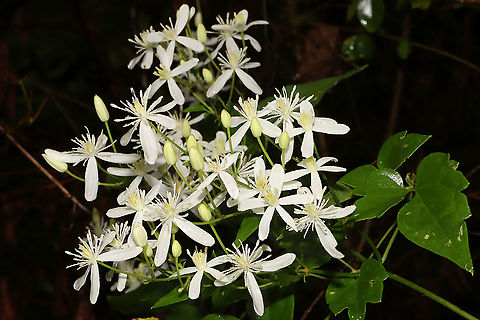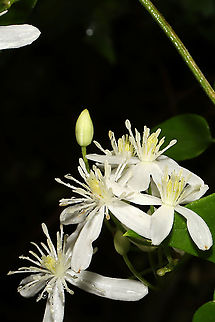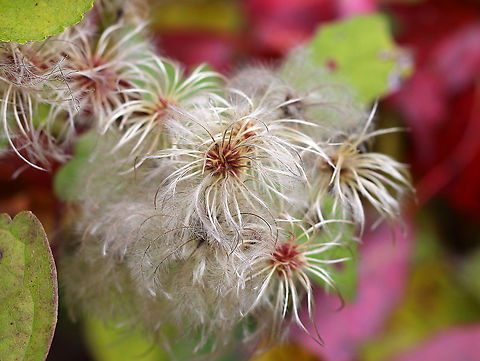
Appearance
This plant is an aggressively growing vine which can climb to heights of 3.0–6.1 m by twisting leafstalks.The leaves are opposite and pinnately compound, trifoliate that have coarse unequal teeth on the margins. It produces small dull white flowers of 13 to 19 mm wide in July into September that are faintly sweetly fragrant; normally dioecious so that there are separate staminate and pistillate plants.
The male plants are a little showier in flower and don't bear seed. The dry fruit is an achene with long hair as silvery gray feathery plumes attached in late August into November. It grows on the edges of the woods, moist slopes, fence rows, in thickets and on streambanks. It grows in full sun to light full shade and is very adaptable to many soils from sandy to clay, dry to draining wet, and acid to alkaline with pH range of 6.0 to 8.5. It has a deep but sparse, fibrous root system that makes it hard to transplant. Good for USDA hardiness zones of 3 to 8. Virgin's Bower is not commonly planted in gardens and landscapes in most places. It is sold by a good number of native plant nurseries and some specialty and large conventional nurseries.

Uses
What is usually sold at most every conventional nursery or garden center is the similar sweetautumn clematis, "Clematis terniflora", from Japan that is much more rampant growing, that bears heavier clouds of white flowers with a stronger fragrance, that has simple leaves not compound with 3 leaflets, that as one plant self-sows around a lot, and becomes an invasive plant when escaping cultivation in North America.References:
Some text fragments are auto parsed from Wikipedia.
